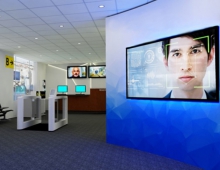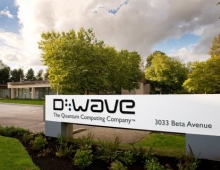
Mitsubishi, NEC Make Progress in the Standardization of Quantum Encryption Networks
Mitsubishi Electric, NEC, and Institute of Industrial Science, University of Tokyo have successfully interconnected their different quantum cryptography systems for the first time in Japan.
This achievement was the result of modifying different quantum encryption systems developed by NEC and Mitsubishi Electric, which were researched and developed under a quantum encryption technology project sponsored by the National Institute of Information and Communication (NICT), Research and Development on Quantum cryptography, from 2001 to 2005.
Quantum cryptography guarantees absolute security, underwritten by the laws of quantum physics.
Security of most modern cryptography is based on computational complexity, and the extraordinary time necessary for cryptanalysis. It has been pointed out that modern cryptography may be threatened by the increasing speed and ability of computers in the future.
To that end, many are suggesting a shift to using quantum encryption. This type of optical cryptography uses quantum-state photons to carry data, and has the advantage of being able to detect eavesdropping. This results in a physically unbreakable code. However, since there has been no standardization in the details of the encryption algorithms or the construction of optical devices necessary in communications, it has not been possible to interconnect different systems or build a communications network between different users. Mitsubishi and NEC have now developed a technology that can interconnect Mitsubishi Electric and NEC?s cryptography systems. Results verify the potential for the system to be the foundation for the next generation of secure networks, according to the companies.
It should be pointed out that NEC and Mitsubishi have not discovered a new cryptographic method. Their technology ensures the secure distribution of keys based on the effects of quantum mechanics, among different stations.
The companies believe that it should be possible to be apply the new technology using quantum cryptographic networks in 5 years.
Quantum cryptography guarantees absolute security, underwritten by the laws of quantum physics.
Security of most modern cryptography is based on computational complexity, and the extraordinary time necessary for cryptanalysis. It has been pointed out that modern cryptography may be threatened by the increasing speed and ability of computers in the future.
To that end, many are suggesting a shift to using quantum encryption. This type of optical cryptography uses quantum-state photons to carry data, and has the advantage of being able to detect eavesdropping. This results in a physically unbreakable code. However, since there has been no standardization in the details of the encryption algorithms or the construction of optical devices necessary in communications, it has not been possible to interconnect different systems or build a communications network between different users. Mitsubishi and NEC have now developed a technology that can interconnect Mitsubishi Electric and NEC?s cryptography systems. Results verify the potential for the system to be the foundation for the next generation of secure networks, according to the companies.
It should be pointed out that NEC and Mitsubishi have not discovered a new cryptographic method. Their technology ensures the secure distribution of keys based on the effects of quantum mechanics, among different stations.
The companies believe that it should be possible to be apply the new technology using quantum cryptographic networks in 5 years.





















